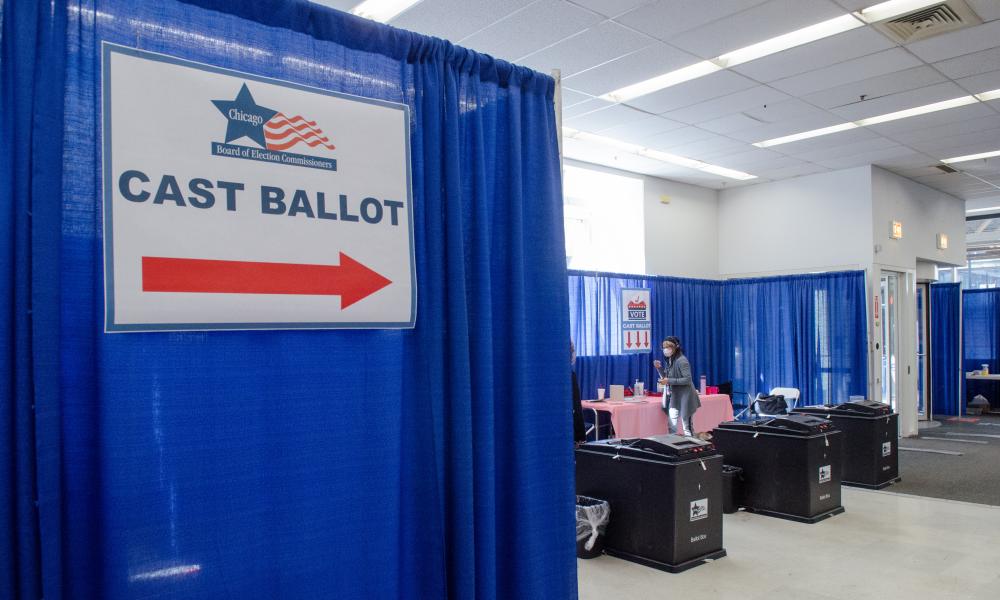It’s a strategy that takes place not in smoke-filled rooms or encrypted chats, but out in the open.
Campaigns leave a directive to groups on their public-facing websites describing the kind of targeted advertising that they want, which outside spending groups then use to craft advertisements on their behalf. Around the text on their website is a literal red box – flagging committees to pay attention.
Given its prevalence, examples of the red-boxing are easy to find.
Related: Marjorie Taylor Greene files motion to remove House speaker Mike Johnson
“Voters, especially women over 50 and voters outside Pittsburgh, need to know that they have a choice to make between Bhavini Patel and Summer Lee,” reads a typical example – outlined by a little red box – at the bottom of the “media” page on Democratic candidate Bhavini Patel’s website.
Patel, who is challenging the progressive incumbent Pennsylvania congresswoman Summer Lee in an April 24 primary, establishes a short but specific campaign narrative in her red-boxed statement.
“Bhavini is a principled progressive and lifelong Democrat who will fight for abortion rights and freedom from gun violence.” Lee, on the other hand, “wants to ‘dismantle’ the Democratic party, she undermines President Biden and even wants to ‘abolish’ the police”.
It’s a clear narrative that an outside group could easily turn into a campaign advertisement.
Since the US supreme court ruled in Citizens United v Federal Election Commission in 2010 that corporations and outside groups can lavish unlimited amounts of money on elections, spending has increased dramatically, with wealthy donors pouring money into elections – including state and local ones. In its ruling on Citizens United, the court added a caveat: groups can spend unlimited funds on elections as long as they are not coordinating directly with the campaign to do so.
To get around that requirement, authors Gabriel Foy-Sutherland and Saurav Ghosh found, at least 240 Senate and House candidates in the 2022 elections cycle employed red-boxing; the strategy was most commonly used in competitive races. And it pays off – campaigns that engaged in red-boxing earned hundreds of times more dollars in advertising by “independent” groups supporting their candidate.
The Federal Elections Commission has not only declined to prosecute red-boxing cases – it has also practically endorsed the strategy. In response to a complaint that the 2020 presidential campaign for Pete Buttigieg had violated the rule against coordinating with independent groups by tweeting out a suggested advertisement strategy, FEC commissioners wrote in a memo that “the request or suggestion standard is meant to cover requests to select audiences, not statements to the general public”.
In effect, said Foy-Sutherland, campaigns engaging in redboxing are “outsourcing responsibility” to Super Pacs that “don’t face the same kind of regulations on raising and spending money”.
The practice is not limited to either party – Foy-Sutherland and Ghosh found that the strategy was deployed in 2022 by Democrats and Republicans alike.
Sometimes candidates use red-boxing to coordinate with a specific group. In other cases, said Foy-Sutherland, “It’s more of a kind of cry for help, being like, ‘We’re running against this incumbent, we’re not going to be able to raise as much money as them and so we’re going to need somebody to come in and help us.”
